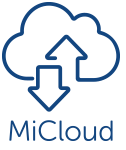by Rikus Jansen, head of EOH Voice and Unified Communications
As each new generation enters the workforce, it brings with it new expectations that set the pace and direction for future innovation.
Not long ago, our discussions centred on the future of work as it relates to millennials. However, 2016 was the first year that members of the so-called “Generation Z” started entering the workforce.
Gen Z’s preferences, habits and characteristics are unique, and employers need to take notice now as they’ll quickly infiltrate the workforce within the next five years.
What are the characteristics of Gen Z?
Gen Z values effective communication over convenience, and will put a heavier emphasis on collaboration, with the smartphone being the hub of communications.
New mobile apps, virtual reality, automation and bots will have a major impact on the way Gen Z works. And this in turn will set the stage for how companies and their IT teams service this new generation.
Somewhat surprisingly, Gen Z also prizes face-to-face communication more than any other generation, but, once again, with an emphasis on effectiveness over convenience – a major shift from how millennials prefer to work. While one in four Gen Z workers prefer communicating in person, millennials were most likely to respond that face-to-face communication will be less important in the future.
A recent report found that while millennials have encouraged the workplace to become more technologically advanced and remote-work friendly, Gen Z will bring more balance to the workplace through face-to-face communication and tools that will help them communicate more effectively.
Gen Z vs millennials in more detail
In general, millennial work styles and communications preferences differ from their Gen X predecessors, but Gen Z preferences are more a hybrid of the two.
The majority of Gen Z workers want a physical workspace (57%) combined with the ability to work remotely (48%) and have flexible hours (73%).
When asked about the types of communications tools they want to use, the majority of millennials want tools that will save them the most time. Conversely, Gen Z wants to use tools that are the most effective, even if that takes more time, demonstrating a desire to do a job well rather than just quickly.
When it comes to traditional workplace tools, Gen Z brings balance between high-tech millennials and older Gen Xers. Less than 20% of Gen Z respondents say they are likely to use traditional Gen X tools like email or landlines for work. On the flip side, Gen Z is the least likely of every generation to use millennial favourites like messaging and chat apps in the future workplace.
Smartphones are the exception and are quickly becoming a hub of communication for all generations, but especially for Gen Z. When asked which device they used to take the survey, twice the number of Gen Z respondents (62%) used a smartphone over millennials (31%) and Gen X (28%).
The majority of all respondents (56%) would prefer to use the same tools for work as in their personal lives.
Generation Z also craves constant and immediate feedback. The days of leaving a voicemail or firing off an email and awaiting a response are long gone, and were possibly never part of this generation’s behaviour anyway.
They are used to having a wide range of choices too – be they different information feeds, entertainment channels or apps.
Rather than accepting the corporate suite of applications that are preloaded onto their computers, they will expect an enterprise app store, where they can browse, choose and instantly download the apps they require – just as they would on their personal devices.
What this means for your business
Thirty years ago, business was more frequently done in person than on the phone; twenty years later email took over, turning our business relationships into words on the screen – with an occasional photo for good measure.
With Generation Z we are coming full circle, with a modern take on face-to face meetings through virtual environments where we can simulate the level of immediacy and closeness that has disappeared.
Rikus Jansen is a Unified Communications specialist. He entered the South African technology space in the late 1980s, pioneering 3D animation and video effects in the broadcasting industry. This led to a career in corporate ICT outsourcing. He co-founded Ensync Voice Solutions, a unified communications company. After merging the Ensync companies with the JSE-listed ICT provider, EOH, he now heads up the EOH Voice and Unified Communications business, which is one of the leading communication providers in South Africa.











